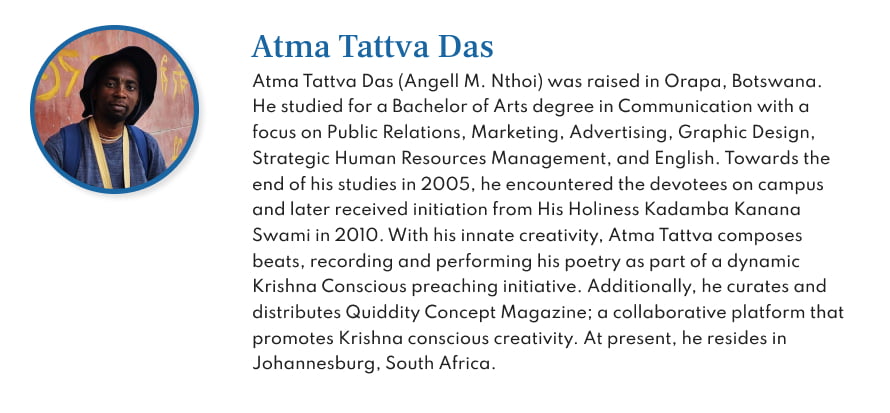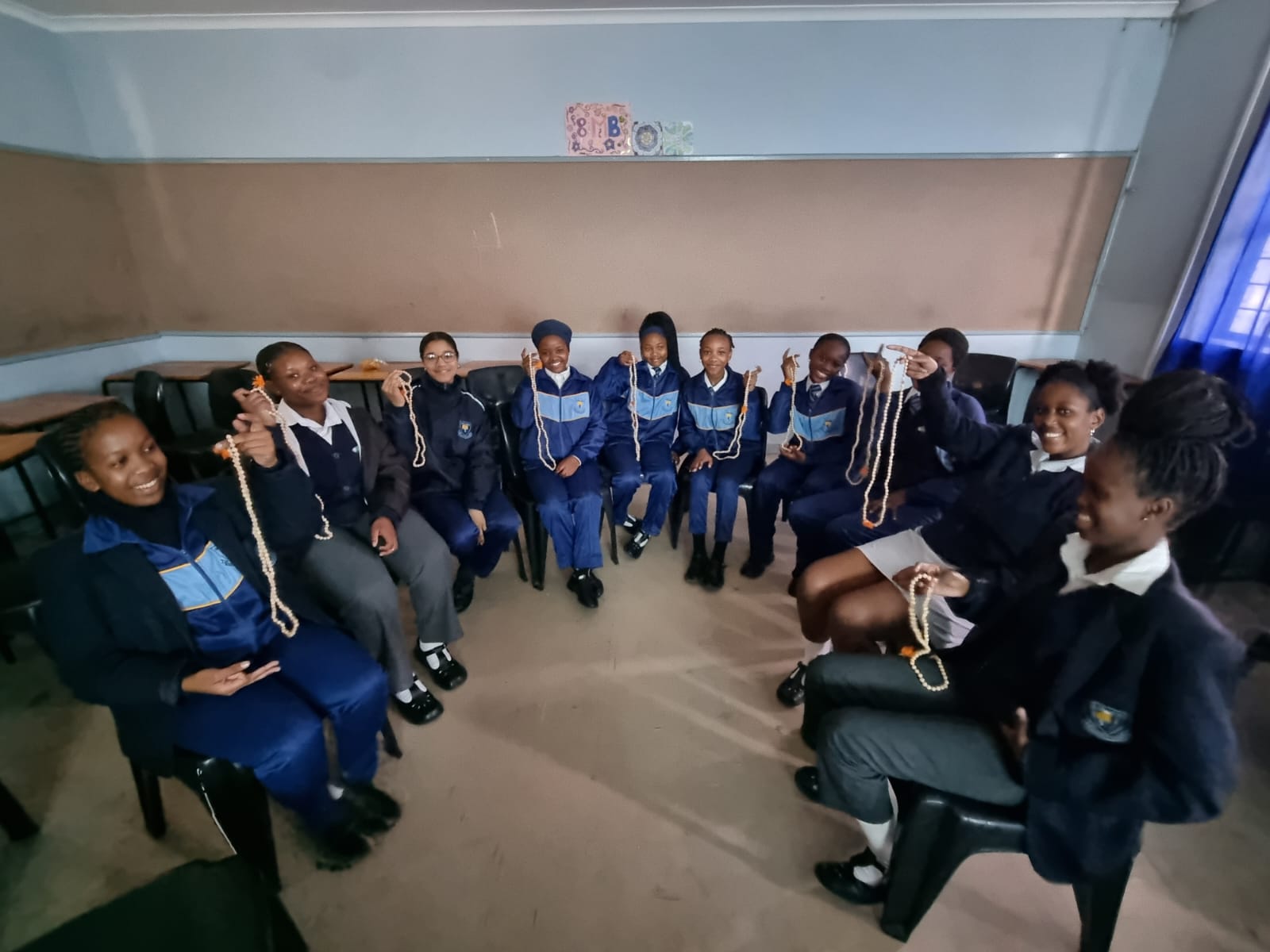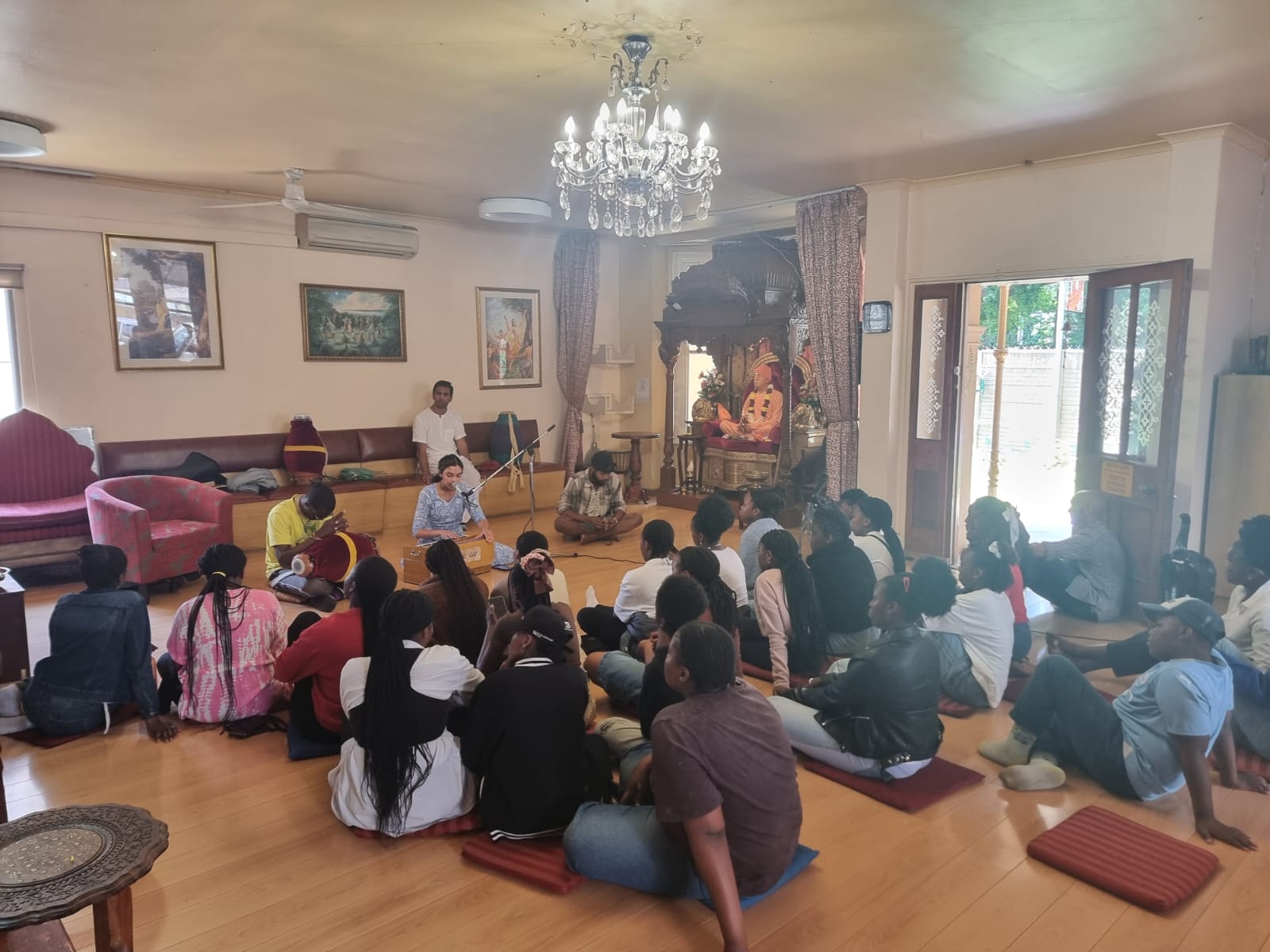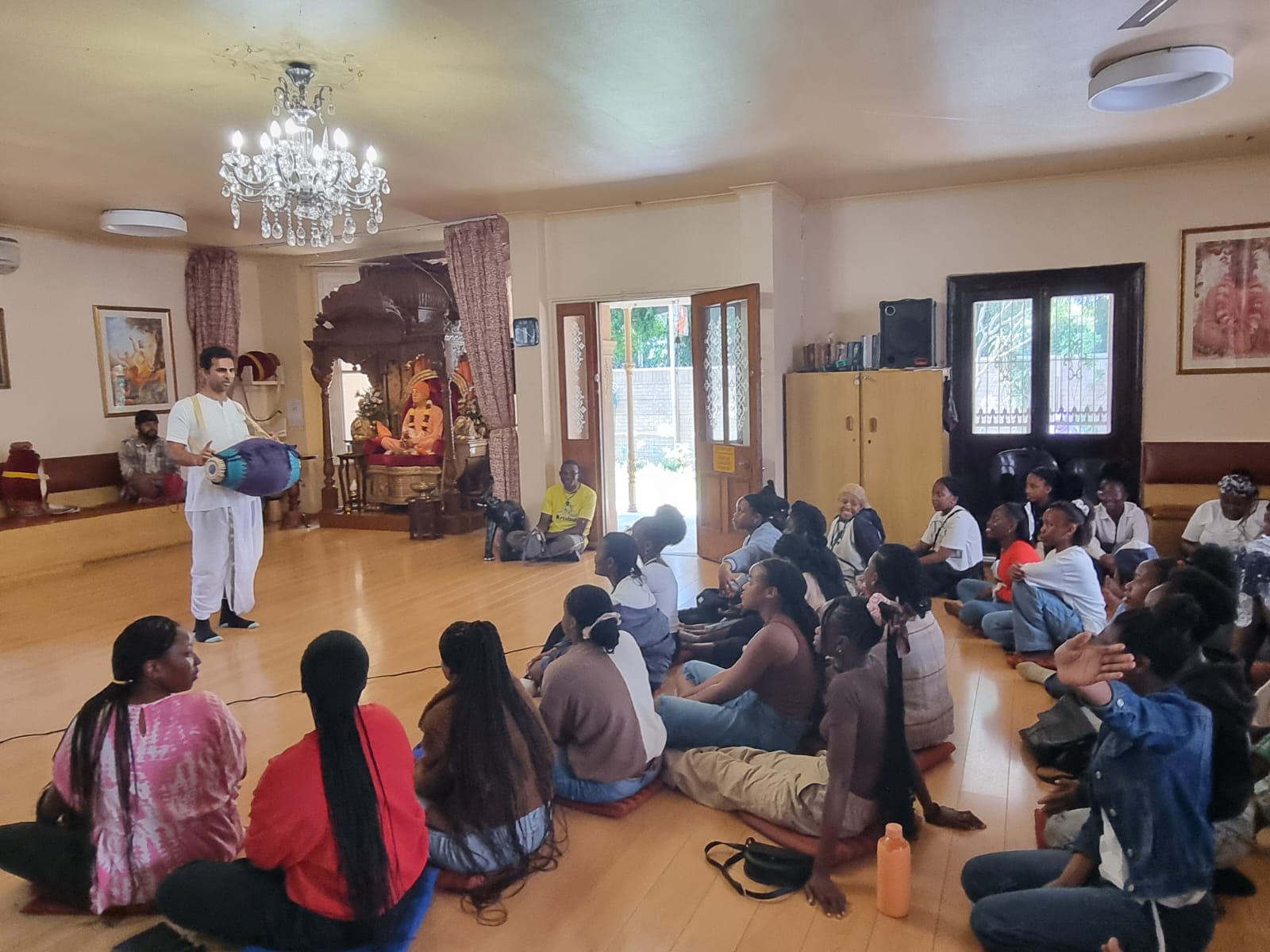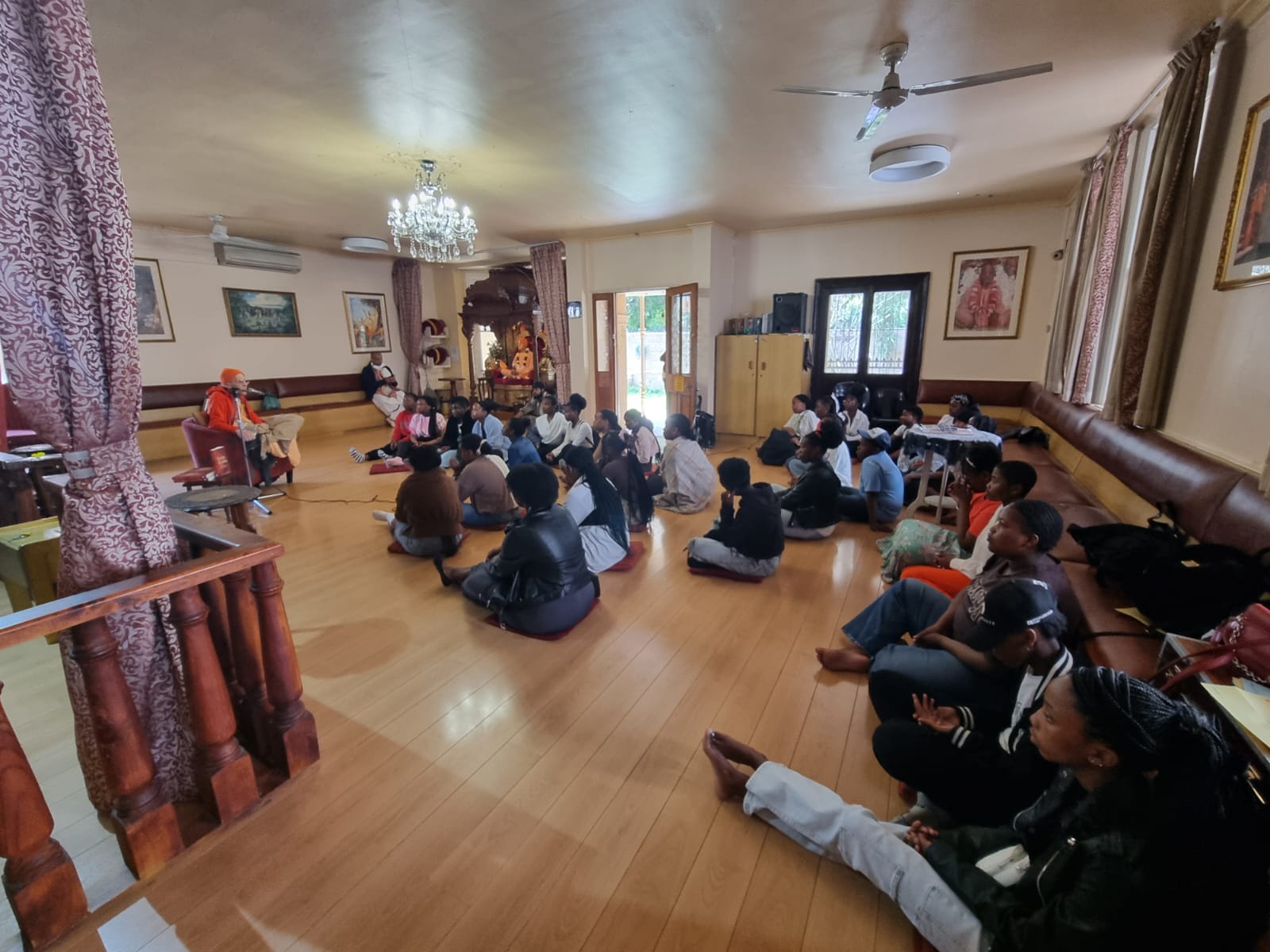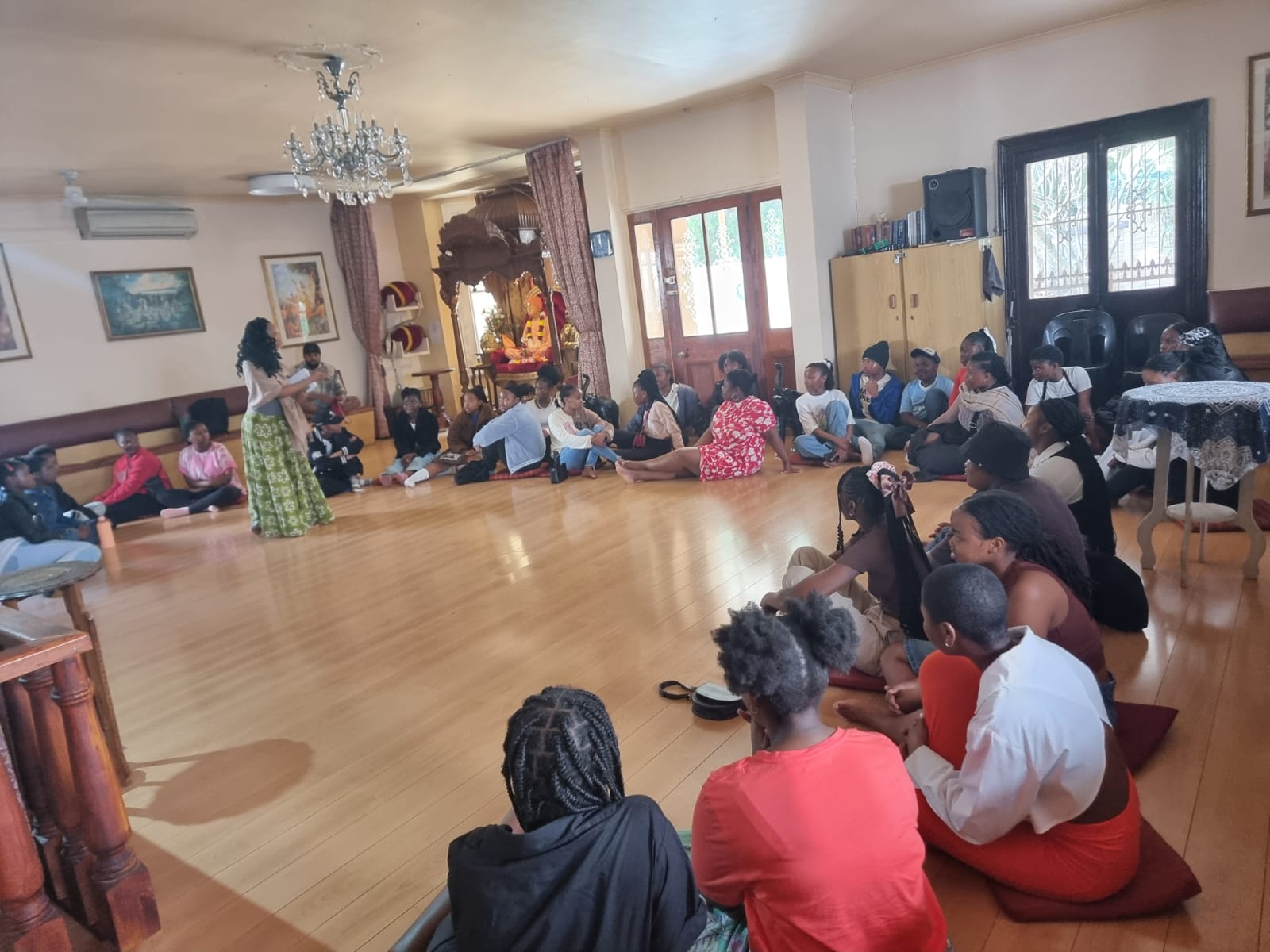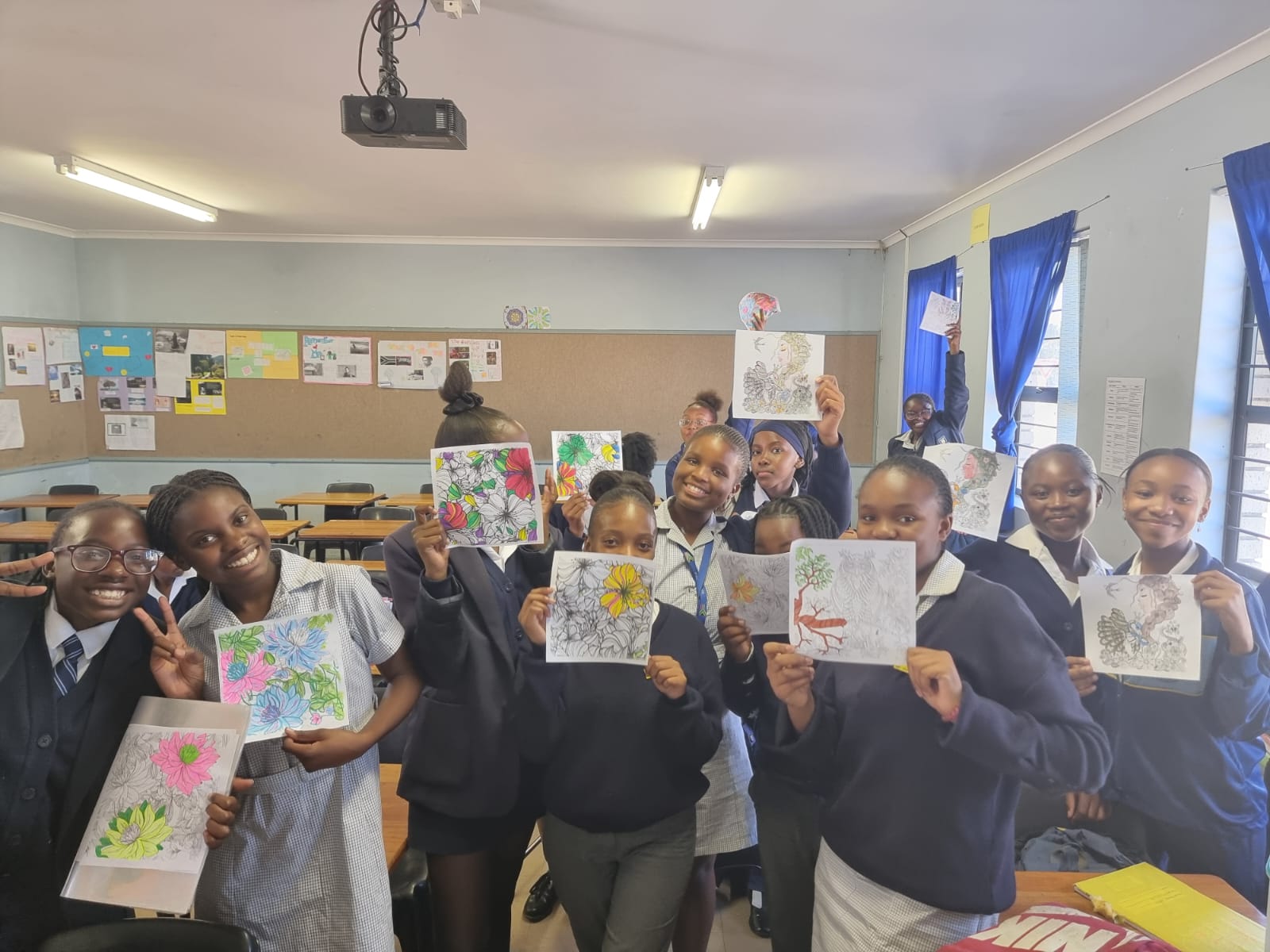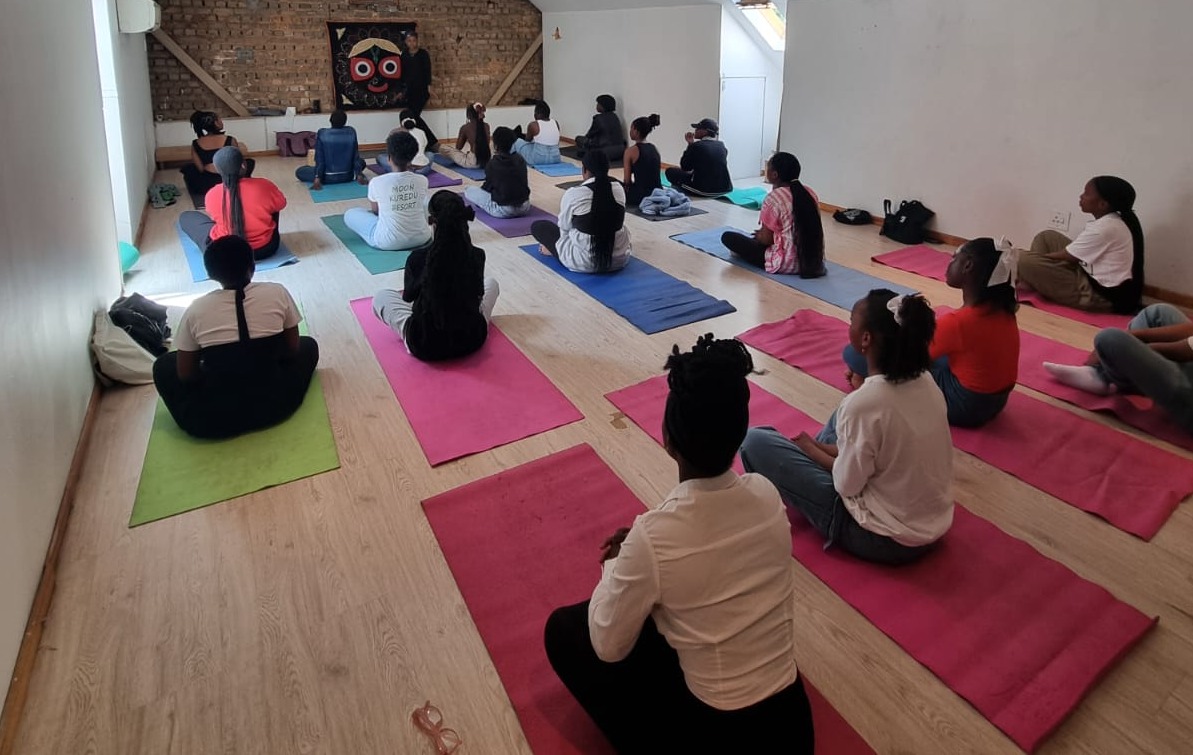High-School Preaching Program Inspires Students Through Spiritual Exploration
By Atma Tattva Das, ISKCON News Staff Writer | Oct 27, 2024
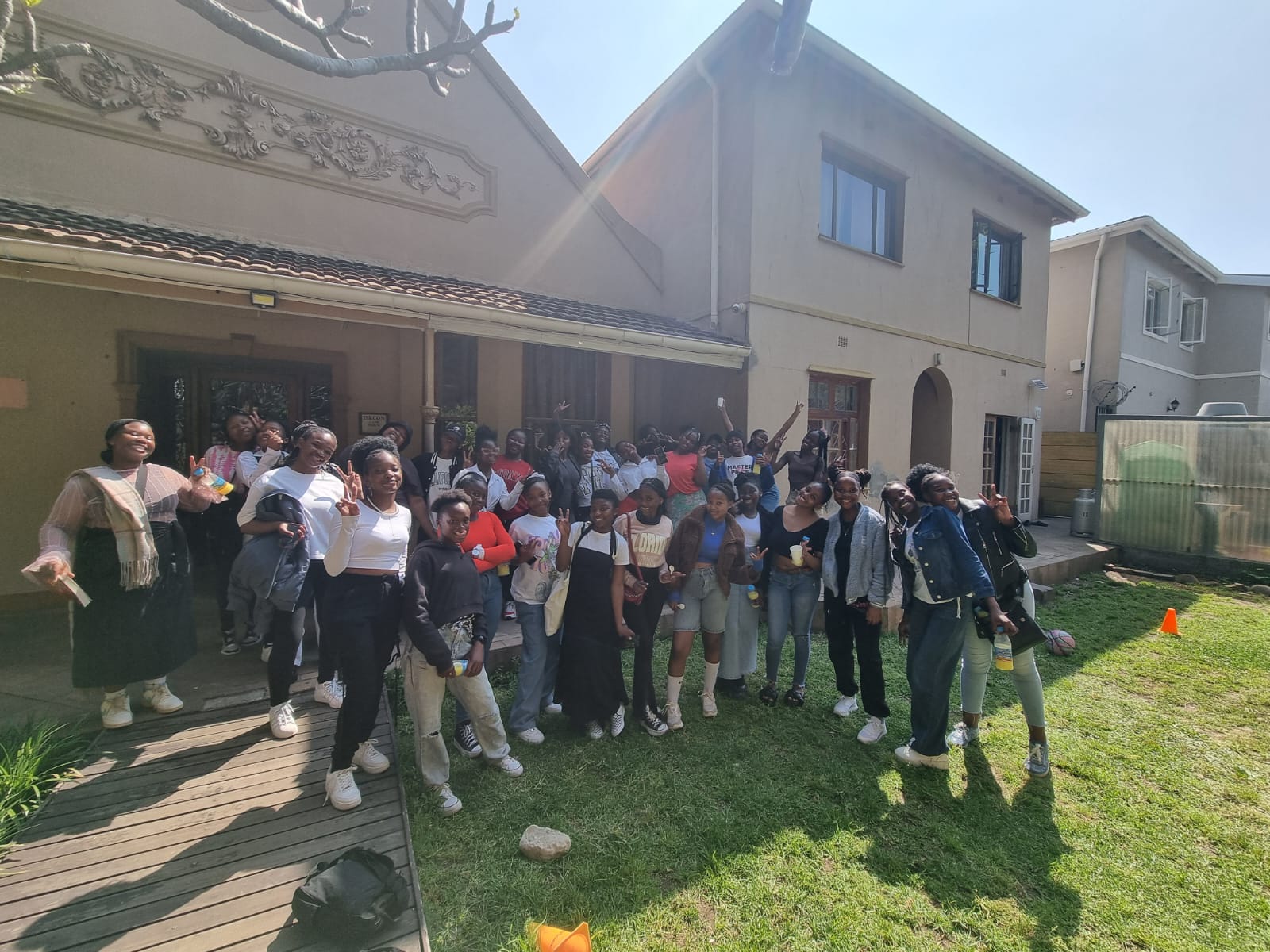
Ekhaya Program students at the entrance of the ISKCON CPT Temple.
Bavisha Moonasar, also known as Balai Devi Dasi, is a high school teacher in Cape Town who leads the Ekhaya High School Preaching Program. This program aims to introduce students to Krishna consciousness. It has transitioned from informal discussions to structured weekly gatherings, allowing students to explore spiritual concepts and ask questions. The initiative encourages students to engage with spirituality in a structured format.
“The kids are inquisitive. They’re very spiritually inclined, and it just felt natural to give them something deeper,” Balai explained. Her efforts began by simply responding to students’ curiosity, creating a safe space where they could discuss topics like consciousness, the nature of the soul, and the mind. “We discuss practical things,” she said. “What is consciousness? What is the mind? What is the difference between the soul and the body?” This open and relatable approach allows the students to engage with Krishna consciousness on their terms.
- High school students chanting japa.
- Ekhaya Program students in kirtan with Bhaktin Hira Singh.
- Mridanga demonstration with Bhakta Jayant Ramjee.
The program recently reached a significant milestone with a special event at ISKCON Cape Town on October 12th. Jayadvaita Swami, a senior disciple of Srila Prabhupada, was present for the program, which left a lasting impression on the students. “They got to see how other devotees live their lives. It was an eye-opening experience for them,” Balai recalled. This event gave the students an opportunity to experience Krishna consciousness beyond the school environment, making it a pivotal moment in their spiritual journey.
She described how the program that day included a talk by Jayadvaita Swami, which allowed the students to see a revered spiritual leader in action. “They loved his presence, and they were fascinated by the whole experience. It was something different for them,” she shared. The event also allowed her students to see the larger ISKCON community and its practices firsthand. “It’s one thing to hear about Krishna consciousness in school,” Balai reflected, “but seeing it in a temple setting, with devotees who’ve dedicated their lives to it, is something else entirely.”
Despite such successes, maintaining continuity with the students remains a challenge for Balai. Many of her former students are now attending universities like UCT, Stellenbosch, and CPUT, and keeping in touch isn’t always easy. “It’s challenging to keep up with students who move on,” she admitted. “You have these brief interactions with them over text.” While the connections may be brief, Balai makes an effort to keep them alive, even if it’s through a quick message or call. “If that’s the least I can do with these kids, just to maintain that relationship, then that is my hope—that will carry them through,” she said.
Balai is aware that her role is limited by time and resources. As a full-time teacher, she often wonders if she could do more for her students. “I do feel guilty at times because I wonder, is there more that I should be doing?” she said. Yet, she’s also pragmatic, recognizing that she is just one person. “I’m only acting according to my nature, what comes naturally to me, what I’m inclined towards in Krishna consciousness,” she explained.
- Students listen to a presentation by Jayadvaita Swami.
- Learners participating in an interactive “Who is God?” poetry workshop with Bhaktin Lireko Qhobela.
- Sharing spirituality through art.
- Yoga with Taruni Radha Devi Dasi.
Looking ahead, Balai hopes to expand Ekhaya and bring more devotees on board to offer students a wider range of experiences in Krishna consciousness. “My dream is to have devotees come on board and contribute in the way that they can best give the kids a variety to choose from in Krishna consciousness,” she said. Her vision is for students to see that spiritual life is diverse and can be integrated with different talents and interests.
Many of her students are artistically inclined, and Balai sees an excellent opportunity to engage them through art. “Our learners are artistically inclined—whether it’s painting, drawing, creating,” she said. “If someone can just show them that they can even use these skills and talents in Krishna consciousness in a spiritual way, I think it will just further their journey.” She hopes that by involving more artistic devotees, the program can offer more creative outlets for spiritual expression.
For Balai, Ekhaya is about more than just teaching spiritual concepts; it’s about fostering relationships and providing students with a community they can rely on. “Just a text, a phone call is reassuring enough to them that they can always come back,” she noted. Despite the challenges, she remains committed to nurturing the spiritual curiosity of her students and hopes that as they continue to grow, they will deepen their connection to Krishna consciousness.
The Ekhaya program, with its focus on open dialogue and practical spirituality, has already had a significant impact on the lives of the students involved. As Balai continues to develop the program and involve more devotees, her vision for a more dynamic and inclusive spiritual journey for her students comes closer to fruition.
Balai encouraged any devotees who wish to contribute to the program to reach out. “If devotees would like to contribute somehow, I am on the socials under Balai Devi Dasi,” she said. By involving more people, she hopes to build a more robust support system for her students, allowing them to explore Krishna consciousness in even greater depth. Balai is reachable via Instagram and Facebook and is always happy to connect with devotees who want to contribute to the growing Ekhaya Preaching Program.
